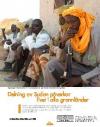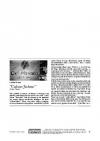The politics of two Sudans : the South and the North 1821-1969
| Upphovsperson: | Ruay, Deng D. Akol |
|---|---|
| Utgivare: | Nordiska Afrikainstitutet | Uppsala : Nordiska Afrikainstitutet |
| År: | 1994 |
| Ämnesord: | Sudan, East Africa, History, Colonialism, Independence, Government, Civil war, Islamic law, SOCIAL SCIENCES, SAMHÄLLSVETENSKAP |

